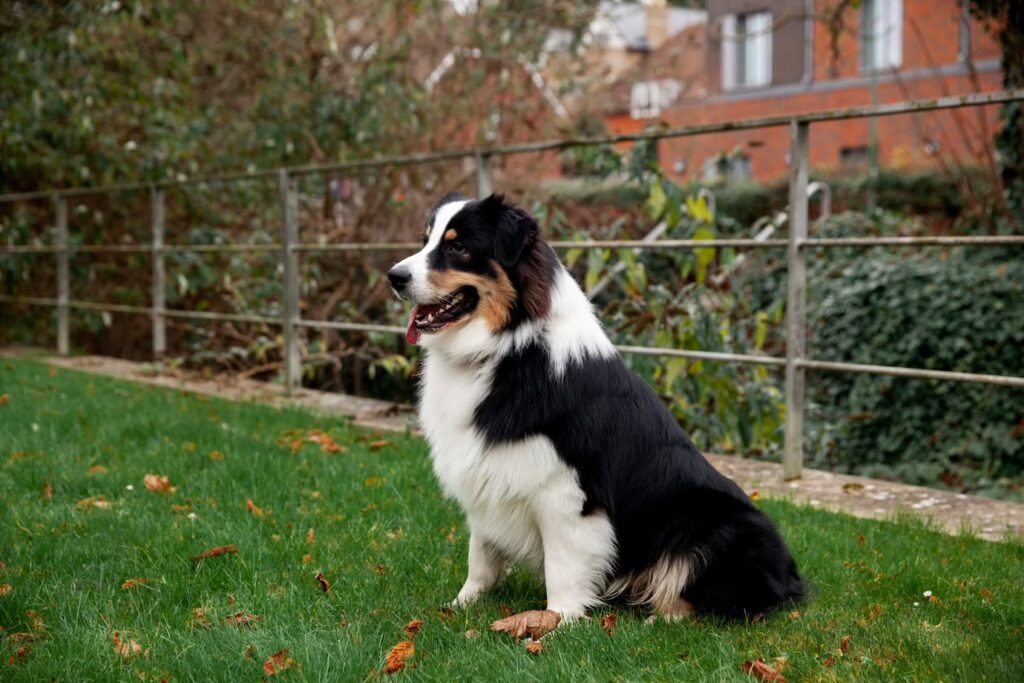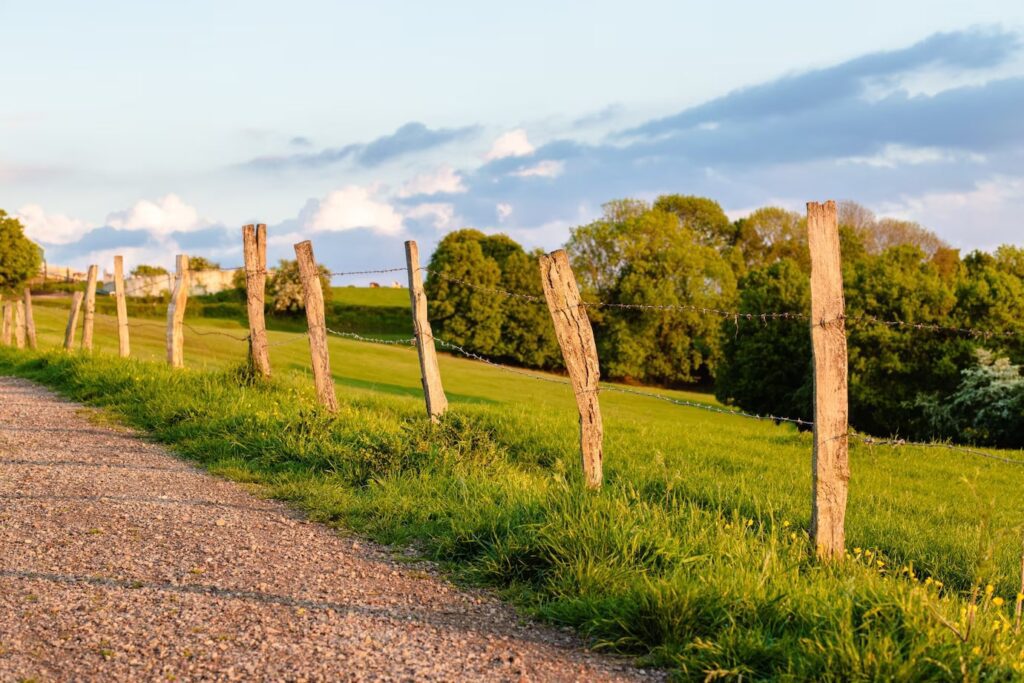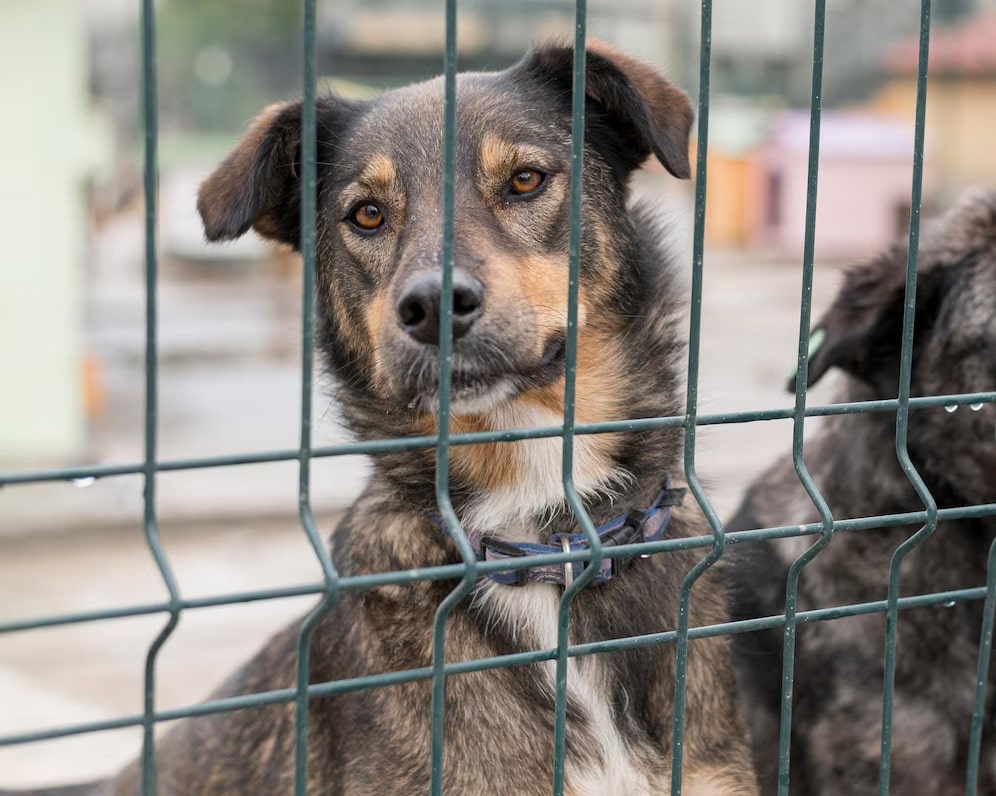- Free Estimates

A fenced yard is a great way to provide a safe and secure space for your family and pets. In addition to improving your home’s curb appeal, a fence can add value to your property. However, one of the biggest challenges of having a fence is keeping dogs from digging under it. In this blog post, we’ll explore some tips for fence installation in Newtown, CT, and share strategies for preventing dogs from digging under the fence.
When it comes to fence installation in Newtown, CT, selecting the right fence for your yard is the first step in securing your property and keeping your dog from digging under the fence. Here are some of the most common types of fences and the factors to consider when choosing one to ensure you make the best choice for your specific needs:
Wooden fences are a classic and versatile option that can be customized to match the style of your home. They come in various styles and can be painted or stained to your liking.
Vinyl fences are a low-maintenance option resistant to rot, fading, and cracking. They come in various colors and styles, including designs that mimic the look of wood or wrought iron.
Chain-link fences are a cost-effective option that provides security and visibility. As a result, they’re commonly used for commercial or industrial properties and residential purposes.
Aluminum fences are durable, low-maintenance, and resistant to rust and corrosion. They come in various styles and colors and can be customized to match your home’s exterior.
Selecting the right fence for your yard is crucial for the security and privacy of your property, and it’s important to consider several factors when installing a fence in Newtown, CT. Here are some of the most important factors to keep in mind when choosing a fence:
Consider a fence with closely spaced pickets or panels if privacy is a concern. A wooden or vinyl fence with slats can also provide privacy while allowing some visibility.
Choose a fence with a locking gate and sturdy posts for maximum security. A chain-link fence can also provide security if it’s tall enough and has a secure gate.
Consider the style of your home and choose a fence that complements it. For example, a wooden fence can provide a rustic or traditional look, while a vinyl or aluminum fence can provide a more modern look.
Choose a fence that’s durable and can withstand the elements. For example, wooden fences can be susceptible to rot and insect damage, while vinyl and aluminum fences are more resistant.
Consider your budget and choose a fence that fits within it. For example, a chain-link fence is generally the most cost-effective option, while a wooden fence can be more expensive.
Consider environmental factors, such as high winds or heavy snowfall that can impact the fence’s stability. Then, choose a fence style that is designed to withstand these conditions.
Once you’ve selected the right fence for your yard for fence installation in Newtown, CT, it’s time to prepare for installation. Proper preparation is critical for a successful fence installation and to ensure the longevity and functionality of your fence. Here are some essential steps to take when preparing for fence installation in Newtown, CT:
Choosing the right fence contractor in Newtown, CT, is crucial to ensure a successful installation. Here are some tips on how to select a reputable fence contractor:
Before starting fence installation in Newtown, CT, it’s important to determine whether you need a permit to install a fence on your property. This can vary depending on your location, so you must check with your local government to ensure you comply with any regulations or requirements. Here are some important factors to consider:

Before starting fence installation in Newtown, CT, it’s important to have your property surveyed to ensure that you are installing the fence on your property and not encroaching on your neighbors. Property surveying is an essential step to take before installing a fence, and here’s why:
When preparing for fence installation in Newtown, CT, marking the fence line is crucial to ensure the fence is installed straight and true. Here are some reasons why marking the fence line is important:
Before beginning the fence installation in Newtown, CT, it is important to properly prepare the area. Clearing the designated space and removing debris and obstacles is crucial for proper and secure fence installation, ensuring a stable foundation that withstands weather conditions over time.
Here’s what to keep in mind when installing fence posts for fence installation in Newtown, CT:
After your fence installation in Newtown, CT, it is crucial to take the necessary steps to maintain your fence to ensure its longevity and functionality for years to come. In addition, proper fence maintenance enhances your property’s aesthetic appeal and helps avoid costly repairs or replacements. Here are some useful tips for maintaining your fence:
Dirt, debris, and weather elements can accumulate on your fence, making it look dull and unattractive. It’s recommended to clean your fence regularly using mild detergent and water to remove any buildup of dirt or grime.
Regular fence inspection is important to identify any signs of damage, such as loose or missing boards, bent or broken posts, or rusted hardware. Early damage detection can help prevent further deterioration and keep repair costs low.
Overgrown plants or bushes can put pressure on your fence, causing it to weaken or warp over time. Therefore, it’s important to regularly trim any vegetation that comes into contact with your fence.
Applying a protective coating to your fence can help to protect it from the sun, rain, and other harsh weather conditions. This can also help to extend the life of your fence.

Following these simple tips, you can keep your fence looking great and functioning properly for many years after your fence installation in Newtown, CT.
If a section of your fence is severely damaged, it may need to be replaced. If you’re handy, you can replace the section yourself. Otherwise, consider calling a professional fence contractor to repair or install another fence in Newtown, CT.
One of the biggest challenges of having a fenced yard is keeping dogs from digging under the fence. Here are some tips, including how to keep dogs from digging under the fence:
Dogs may dig for various reasons, including boredom, anxiety, or a desire to escape. Understanding why your dog is digging can help you address the problem.
Train your dog to respect the fence by rewarding and discouraging good behavior. Use positive reinforcement techniques like treats and praise to encourage your dog to stay inside the fence.
Adding barriers to the bottom of the fence can prevent dogs from digging under it. Here are some options:
Bury a layer of chicken wire along the bottom of the fence, extending several inches into the ground. This will make it difficult for your dog to dig under the fence.
Place rocks or bricks along the bottom of the fence to make it more difficult for your dog to dig. This can also help stabilize the fence.
Lay landscaping fabric along the bottom of the fence and cover it with mulch or gravel. This will create a difficult barrier for your dog to dig through.
You can use several deterrents to discourage your dog from digging under the fence.
Spray a dog repellent along the bottom of the fence to discourage your dog from digging. This can be purchased at pet stores or online.
Install motion-activated sprinklers near the fence line. When your dog approaches the fence, the sprinklers will turn on, scaring your dog away.
Finally, consider providing an alternative digging area for your dog. This can be a designated area in your yard where your dog can dig. Bury toys or treats in the area encourage your dog to dig there instead of under the fence.
A fence can provide many benefits for homeowners, including added privacy, security, and curb appeal. To achieve the best results, working with a reliable fence contractor like Newtown Fence Contractor for fence installation in Newtown, CT, is important. Choose, prepare, and maintain your fence for durability. Stop dogs from digging out. Enjoy a secure and beautiful yard with peace of mind.